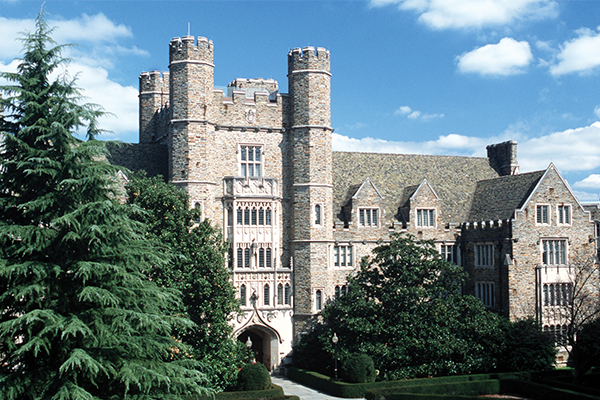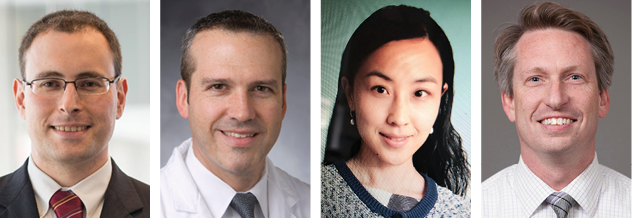
Four Duke University School of Medicine faculty members are among the 100 researchers elected to the American Society for Clinical Investigation (ASCI), one of the nation’s oldest medical honor societies. ASCI supports the scientific efforts, educational needs, and clinical aspirations of physician-scientists to improve health.
Elected to the society from the School of Medicine are:
Miles Berger, MD, PhD, associate professor of anesthesiology; Brent Hanks, MD, PhD, associate professor of medicine; Li Lan, MD, PhD, instructor in the Department of Molecular Genetics and Microbiology; Steve Taylor, MD, MPH, associate professor of medicine.

Berger’s research focuses on the effects of anesthesia and surgery on the brain and whether postoperative cognitive dysfunction (POCD) and delirium could be caused by perioperative changes in Alzheimer’s disease and/or neuro-inflammatory pathways. He is investigating whether delirium or POCD is associated with an increased long-term risk of developing Alzheimer’s disease.
Hanks explores how cancers have evolved to suppress the generation of tumor antigen-specific immune responses and how to exploit that knowledge to develop more effective cancer immunotherapy strategies. He is working to develop new pharmacologic and genetic strategies to overcome immunotherapy resistance and investigate the mechanisms that contribute to some immunotherapy-associated toxicities.
Lan researches how cancer cells respond to DNA damage through DNA repair mechanisms. She is working to develop innovative strategies to target these pathways in cancer therapy. She seeks to advance understanding of DNA repair processes in cancer to develop innovative therapeutic strategies that have the potential to revolutionize cancer treatment and improve patient outcomes
Taylor’s research focuses on the epidemiology, pathogenesis, diagnostics, and prevention of falciparum malaria, especially in children and pregnant women. He aims to integrate epidemiologic, clinical, and molecular genetic models of disease in order to better inform the design of medical and public health interventions to reduce the burden of malaria in hyperendemic regions such as sub-Saharan Africa.
ASCI was founded in 1908. Membership is by election only, and only researchers 50 years of age and younger are eligible for nomination. Therefore, membership in the ASCI is a recognition of a researcher’s significant contributions, at a relatively young age, to the understanding of human disease. The Society has over 3,000 members, many of whom are leaders in academic medicine and industry.
New members will be officially inducted into the Society at the ASCI Dinner and New Member Induction Ceremony on April 5, 2024, in Chicago.